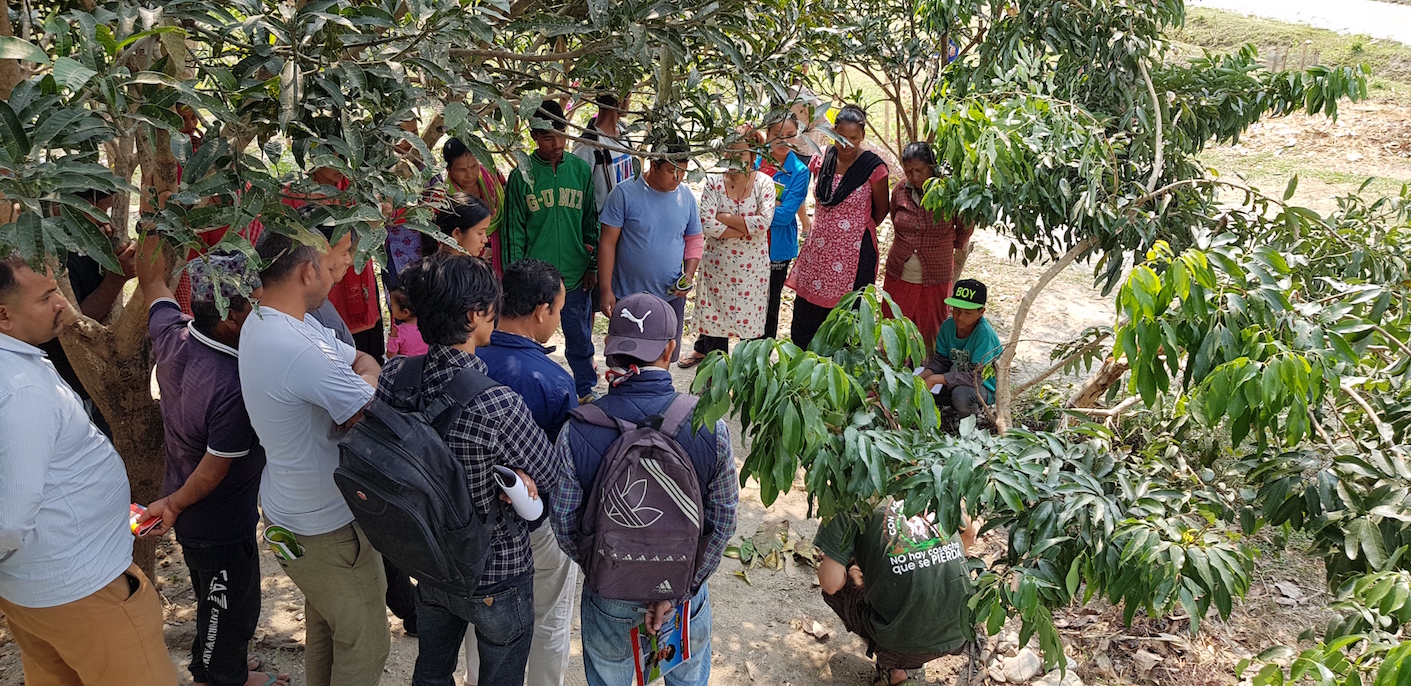Eco Learning Communities

PROJECT DURATION: 12 months.
PROJECT SUMMARY
Eco Learning Communities is an environmental education project that contributes to improving the quality of life of members of 9 communities in the municipality of Suryodaya, Ilam in eastern Nepal, through the conservation and restoration of the ecologies that support them.
The project consists of four strategies based on permaculture, community development and ecological restoration.
A network of socio-environmental mobilisers will implement Environmental Education Programs in 9 communities as well as carry out full Community Environmental Evaluations to assess the ecological health of the community.
With the information collected the mobilisers will work with the community to design and implement Ecological Improvement Plans to address the identified needs.
This project is based on three fundamental concepts:
Learning Communities provide the space and structure for members to become active in learning about the environment and taking responsibility for knowledge sharing within their own communities.
Knowledge in Action speaks to the immediate application learnings into practical action.
Regenerative Development is the investment of time, energy and funds into developing a human presence on earth with the goal to reverse climate change and restore ecosystems healthy functions.
BENEFICIARIES OF THE PROJECT
Direct beneficiaries:
– 9 Socio-environmental Mobilizer from the involved communities trained and responsible for the design and implementation of the Environmental Education Program.
– At least 180 participants in the Environmental Education Program developed in 9 communities of the Municipality of Suryodaya.
Indirect beneficiaries:
All the members of the 9 involved communities who will improve their quality of life through the conservation and restoration of the ecologies that support them.
IMPORTANCE OF THE PROJECT
Nepal is one of the world’s poorest developing countries, with a quarter of its population living in poverty. It is highly vulnerable to climate change and has already experienced changes in temperature and precipitation at a faster rate than the global average. Impacts from these changes will have wide-ranging consequences.
Agriculture provides a livelihood for almost two thirds of the population and accounts for 33 percent of Nepal’s GDP ($21 billion). Millions of Nepalese are estimated to be at risk from the impacts of climate change including reductions in agricultural production, food insecurity, strained water resources, loss of forests and biodiversity as well as damaged infrastructure.
Developing resilience in rural communities, helping them adapt to climate change and engaging them in the global efforts to restore ecosystems and regenerate soil is the only pathway forward to a sustainable, healthy and abundant future.
SUSTAINABILITY OF THE PROJECT
The sustainability of the project is ensuring through the participation of the community along all the project activities.
“Eco Learning Communities” is a fundamental concept of Popular Education, that involves the whole community in its own educational and cultural project, to educate itself in the context of an endogenous sustainable development model respectful with nature.
The establishment of networks also enhance the visibility and sustainability of the projects.
The strategy sets environmental objectives related to climate change, water, air quality and biodiversity, affirming that the preservation and restauration of natural recourses is an essential element for the medium and long-term environmental sustainability.
Furthermore, the Environmental Community Evaluations and the Ecological Improvement Plans will be performed by the Socio-Environmental Mobilizers and the members of the communities, which also ensures the sustainability of the actions of the project.
It’s also important to note that the Suryodaya Municipality will be involved in the project to secure the long-term sustainability.
TOTAL PROJECT COST: 54.042 € 67,45,500 NPR 79,513 CDN 59,950 USD
